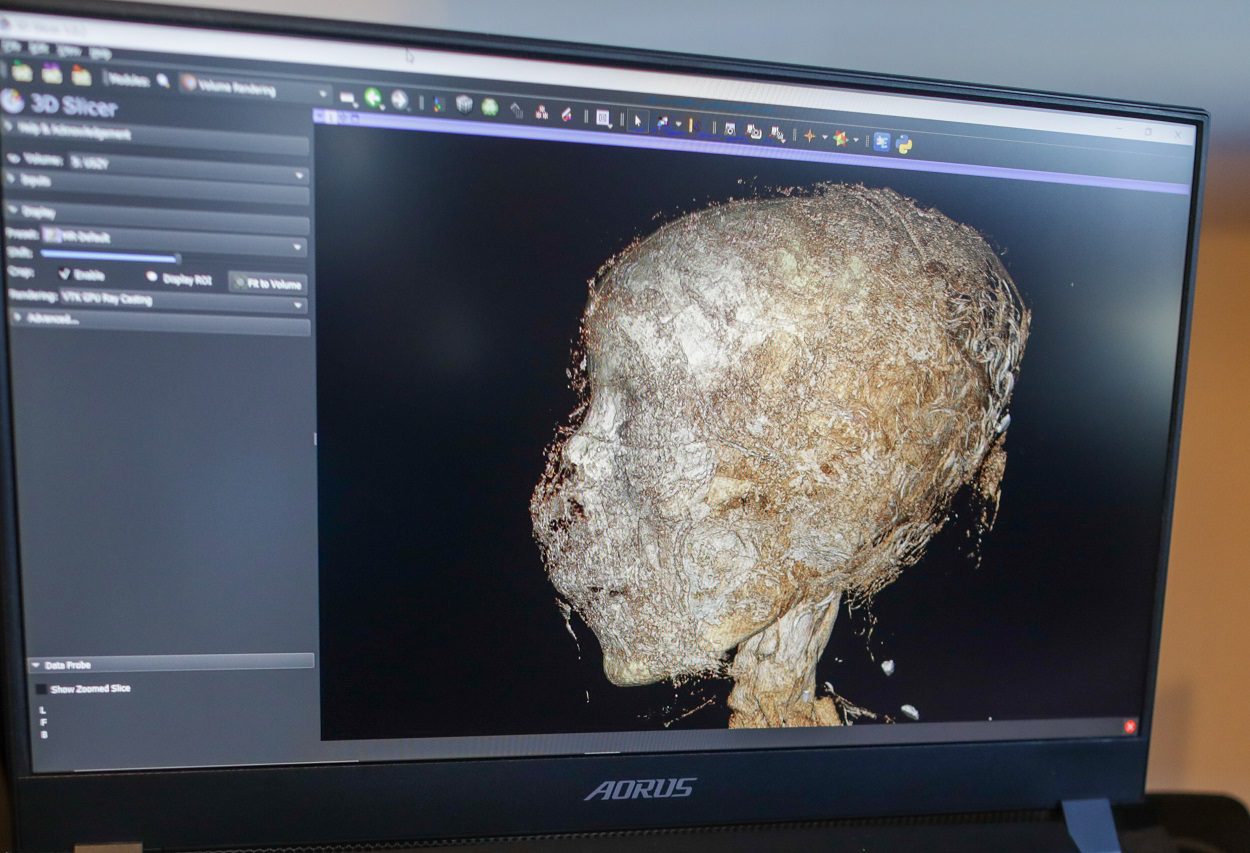A study of a 2,000-year-old mummy has identified extensive facial defects, indicating that the individual suffered from nasopharyngeal cancer.
Nasopharyngeal carcinoma (NPC) is the most common cancer originating in the nasopharynx, most commonly in the postero-lateral nasopharynx or pharyngeal recess (fossa of Rosenmüller).
Based on computed tomography, the study, led by the Warsaw Mummy Project and the Department of Oncology at the Medical University of Warsaw, indicates the possibility of tumour changes in the bones, whilst facial changes to the nasopharyngeal bones are apparent which are not typical of the mummification process.
Professor Rafał Stec from the Department of Oncology at the Medical University of Warsaw said: “For now a malignant tumour is suspected, and the only certain diagnosis is possible after a histopathological examination, which would give a 100 percent certainty.”
Cancer in ancient Egypt was not rare and there are several known cases of confirmed nasopharyngeal cancer. The researchers plan to collect tissue samples for comparison with sample collections from other Egyptian mummies stored in the US and UK.
According to the team, the mummy analysis can contribute to the development of modern medicine by revealing the ‘molecular signature’ of cancer that can be compared with present-day cancers.
The team also hope to identify the cause of the cancer, whether it was associated with a viral infection such as HPV, or was caused due to the genetic background. The study will also expand the knowledge of cancer evolution, contributing to new methods of diagnostics and treatment.
Header Image Credit : PAP





